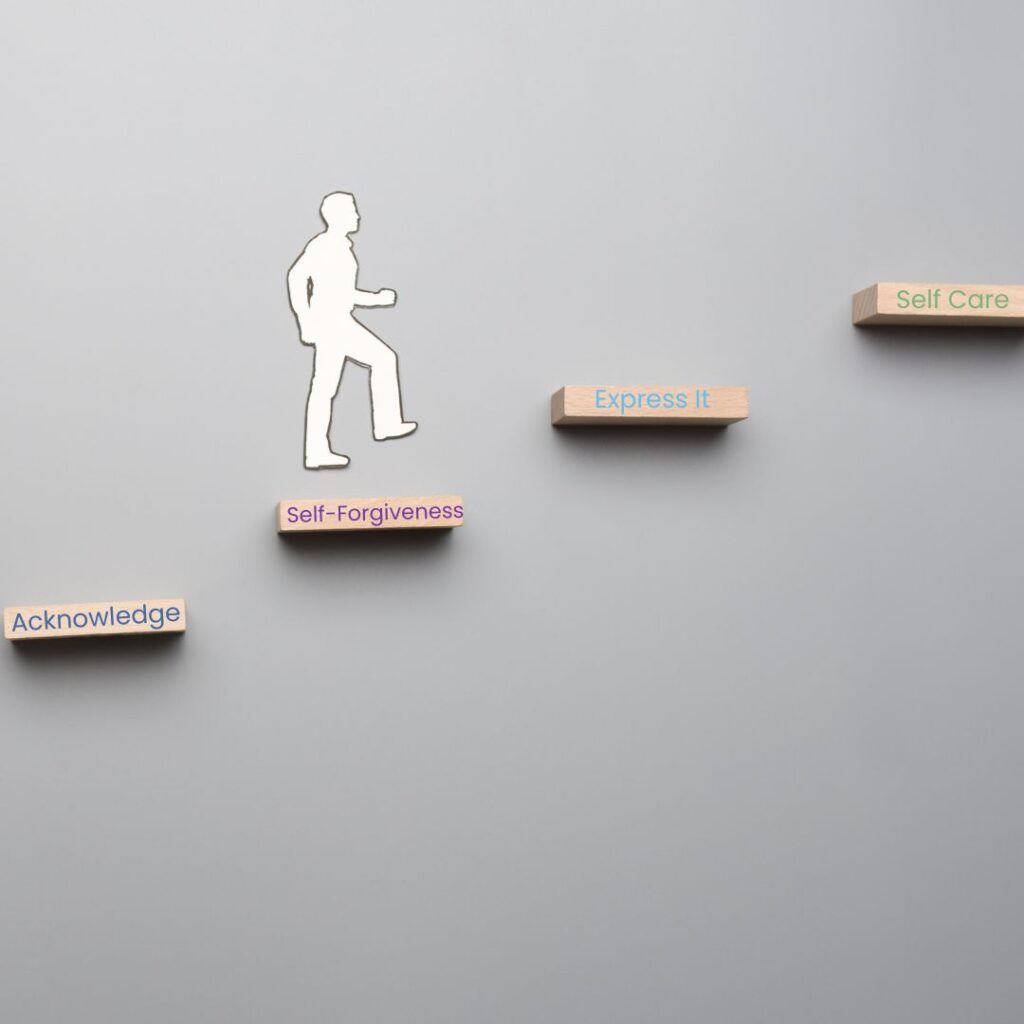Brené Brown, a shame and vulnerability researcher, once said: “I’m just going to say it: I’m pro-guilt. Guilt is good. Guilt helps us stay on track because it’s about our behavior. It occurs when we compare something we’ve done – or failed to do – with our values.”
Although we typically think of the pain and discomfort associated with guilt, that is exactly the feeling that propels us toward change. Guilt is oftentimes associated with anger, sadness, fear, shame, embarrassment, disgust, disgrace, and a sense of inferiority. In relationships, guilt may cause us to withdraw, be aggressive, vengeful, shift blame, or be violent. It is tempting to avoid feelings of guilt; however, we know that until we make amends, those feelings will not subside.

Steps to Managing Guilt
The first step to managing guilt is to acknowledge what we have done or did not do, and to make amends where it is possible. We show in our behavior that we are willing to change and not repeat mistakes to the best of our ability.
The second step is self-forgiveness. Sometimes we continue to feel guilty even after making amends and receiving forgiveness from the other party involved. At this point, we practice self-compassion and acknowledge that we are prone to making mistakes. Practicing self-care and seeking support from friends, family, and/or a mental health professional may be necessary to help in processing guilt and avoiding shame. Remember, guilt and shame are as simple as “I did something bad” vs “I am bad.” The choice is ours to learn and grow from our guilt or let it consume us.
Another way to manage guilt is to express it. Oftentimes feelings of anxiety and distress are only made worse when we keep them deep inside. Sharing guilt with someone we can trust leaves us open to receiving empathy from another person. In addition, journaling about guilt can be another effective way of expressing how we feel. Writing about feelings can be a way to gain more clarity about feelings and help to declutter the mind.
Finally, self-care is important for us to practice especially when processing guilt. Some people often think that they deserve to punish themselves due to poor decisions they have made. My question is why continuing to punish ourselves when we are already feeling terrible for what we have done? The kind thing to do is to remind ourselves that we deserve self-care as we navigate through guilt.
What is Chronic Guilt?
But what does it mean if we experience chronic guilt, feeling guilty a lot of the time whether or not we have done anything wrong? Having persistent feelings of guilt may be a symptom of a mental disorder such as an anxiety disorder, depression, post-traumatic stress disorder (PTSD), obsessive-compulsive disorder (OCD), dysphoria, or an eating disorder. Working with a professional counselor can assist us in determining where our guilt may come from. Everyone experiences guilt in their own way, but guilt can be managed with the methods described above.
